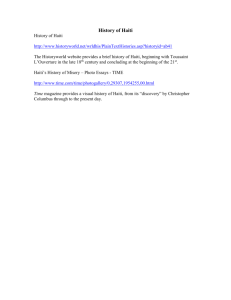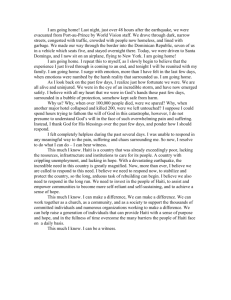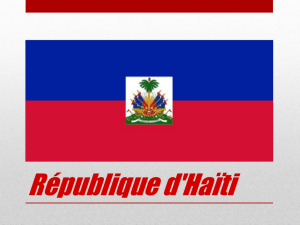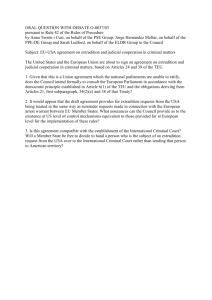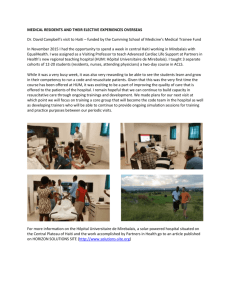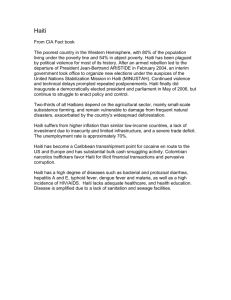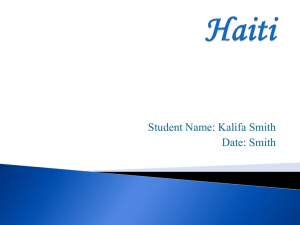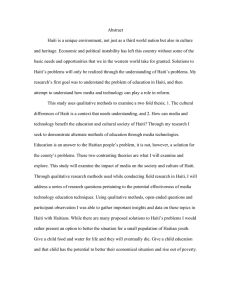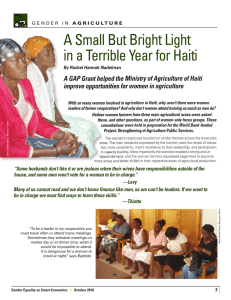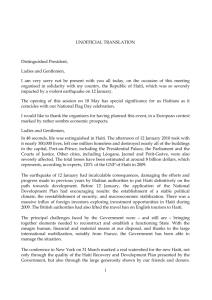EXPLANATORY NOTE It is important to recognize that Haiti still has
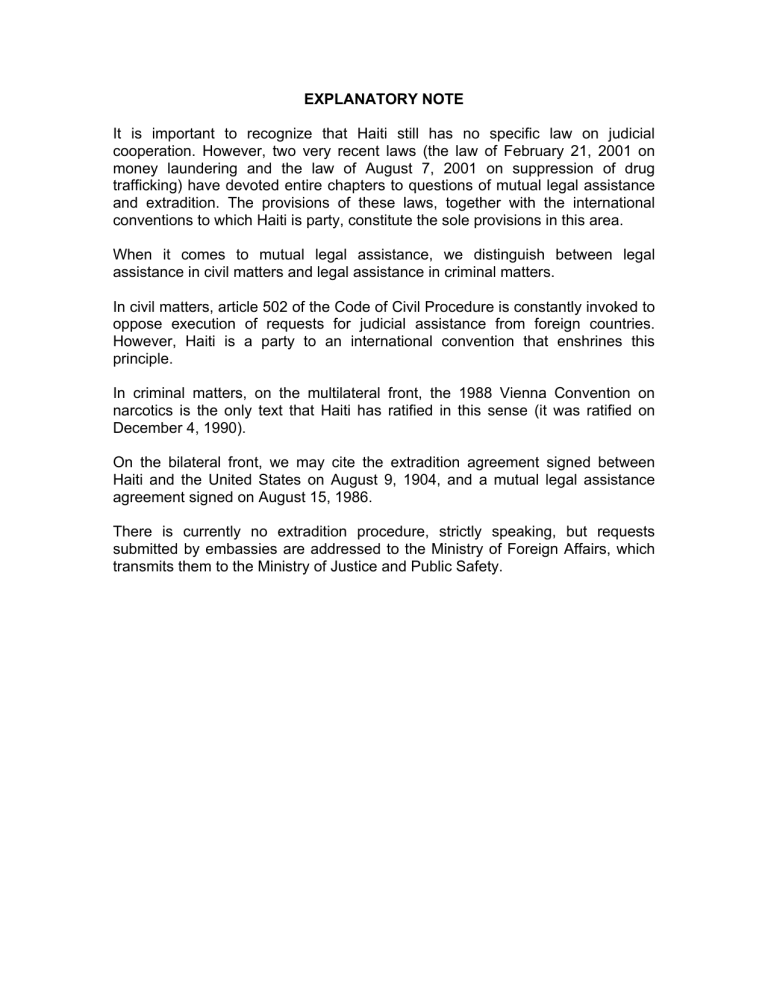
EXPLANATORY NOTE
It is important to recognize that Haiti still has no specific law on judicial cooperation. However, two very recent laws (the law of February 21, 2001 on money laundering and the law of August 7, 2001 on suppression of drug trafficking) have devoted entire chapters to questions of mutual legal assistance and extradition. The provisions of these laws, together with the international conventions to which Haiti is party, constitute the sole provisions in this area.
When it comes to mutual legal assistance, we distinguish between legal assistance in civil matters and legal assistance in criminal matters.
In civil matters, article 502 of the Code of Civil Procedure is constantly invoked to oppose execution of requests for judicial assistance from foreign countries.
However, Haiti is a party to an international convention that enshrines this principle.
In criminal matters, on the multilateral front, the 1988 Vienna Convention on narcotics is the only text that Haiti has ratified in this sense (it was ratified on
December 4, 1990).
On the bilateral front, we may cite the extradition agreement signed between
Haiti and the United States on August 9, 1904, and a mutual legal assistance agreement signed on August 15, 1986.
There is currently no extradition procedure, strictly speaking, but requests submitted by embassies are addressed to the Ministry of Foreign Affairs, which transmits them to the Ministry of Justice and Public Safety.
